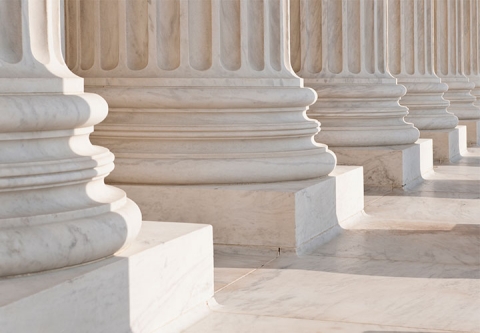Investors in the water industry in the UK are well advised to consider if their shareholding structure affords them appropriate investment treaty protection and access to investment arbitration in the event of possible nationalisations and inadequate compensation.
Labour Party plans to nationalise the water industry in the UK
In 2017, the Labour Party announced its manifesto setting out a programme that it vowed to implement if elected. As part of its programme for "Creating An Economy That Works For All," the Labour Party proposed a nationalisation plan aimed at "Widening ownership of our economy," in particular with respect to the water industry:
"Across the world, countries are taking public utilities back into public ownership. Labour will learn from these experiences and bring key utilities back into public ownership to deliver lower prices, more accountability and a more sustainable economy. We will (…) [r]eplace our dysfunctional water system with a network of regional publicly-owned water companies. (…)
"Public ownership will benefit consumers, ensuring that their interests are put first and that there is democratic accountability for the service."1
If the Labour Party prevails in the election and forms a Government, it may proceed with implementing its nationalisation plan, which would impact investors in the UK water industry. The water industry may not be the only one affected as the Manifesto sets out similar plans for other sectors, including rail and energy.
Investors in the UK water industry risk being adversely affected
There are few details presently available regarding the mechanism through which Labour's nationalisation plan for the water industry would be implemented. There are a range of possibilities, including, for example, forced acquisitions of the water industry's assets and/or of the water companies themselves. Regardless of the mechanism, there is a risk that the nationalisation would adversely affect current private shareholders of such companies.
If the nationalisations are carried out, they likely would be accompanied by compensation in order to comply with UK law. At this stage, however, it is unknown whether and what influence owners of the affected companies would have on valuation of the assets, compensation and the form of its payment. It also may prove difficult for the affected shareholders to dispute the amount offered before the local authorities or courts in the event they disagree with the Government's assessment.
Given these uncertainties, investors in the water industry in the UK are well advised to take action to protect themselves in the event their investments are nationalised and compensation offered by the Government falls below the standard due under international law.
Investment protection and arbitration may safeguard interests of affected investors
While any potential nationalisation is a multifaceted issue, certain investors in the UK water industry may challenge any nationalisation if it fails to meet the requirements of international law, as well as any offer of compensation, if it falls short of fair market value. Qualified investors may do this through international arbitration pursuant to an investment protection treaty, such as a bilateral investment treaty ("BIT") concluded by the UK with other States. In its BITs, the UK has undertaken obligations towards foreign investors and their investments, including, in particular, to protect their investments from uncompensated nationalisations or expropriations.
Notably, BITs commonly include dispute settlement provisions that permit a covered investor to bring an arbitration claim directly against a State alleging a violation of the State's obligations under the treaty. This could prove to be an effective recourse in the event that any nationalisation carried out in the UK fails to be accompanied by prompt, adequate and effective compensation.
Affected qualifying investors could bring a claim directly against the UK before an international arbitration tribunal requesting an appropriate level of compensation:
(i)The tribunal would be convened and proceed under the rules stipulated in a BIT or agreed by the parties (such as the arbitration rules of the International Centre for Settlement of Investment Disputes ("ICSID"), Stockholm Chamber of Commerce, or UNCITRAL).
(ii)The tribunal would often be composed of three independent and impartial arbitrators (one appointed by the investor, one by the State and the third, serving as chairperson, in accordance with the agreed method).
(iii)Upon the constitution of the tribunal and in accordance with the timetable set out by the tribunal in agreement with the parties, the parties would typically present their requests for relief and arguments, together with supporting factual, legal, and expert evidence, in written submissions usually followed by an oral hearing.
(iv)Upon consideration of the material and arguments presented by the parties, the tribunal would issue an award. An ICSID award issued by a tribunal is directly enforceable under the ICSID Convention in more than 150 States, and an arbitral award rendered under other arbitration rules is enforceable under the 1958 New York Convention on the Recognition and Enforcement of Foreign Arbitral Awards in more than 150 States as well.
Thus, investment arbitration offers certain advantages compared to seeking redress before local authorities or courts. Investors who can rely on a BIT concluded between the UK and their country of origin (home State) may therefore be in a beneficial position.
(Re)structuring of investments in the UK through certain jurisdictions can ensure an appropriate level of investment protection and access to investment arbitration
Investors who currently cannot benefit from any applicable investment treaty may wish to consider restructuring their investment to avail themselves of an appropriate level of investment protection and access to investment arbitration. This often can be done by introducing a (holding) company incorporated in a State with which the UK has concluded a BIT into the corporate structure of the UK company. In the event of a later alleged violation by the UK of its obligations under the applicable BIT, the holding company could seek recourse in arbitration directly against the UK.
Corporate (nationality) planning and (re)structuring of investments are permissible and corporate groups are routinely restructured for a variety of reasons. However, an arbitral tribunal constituted to resolve an investment dispute may refuse to exercise jurisdiction or admit a claim in certain situations, particularly where the restructuring took place after the alleged violation or after a dispute arose with the purpose of obtaining access to international arbitration. It is therefore important to structure investments to ensure access to international investment protection and arbitration before the onset of a dispute.
Given our extensive experience and knowledge of the field, we are well positioned to advise you on options for protecting your investments in the UK. We would be pleased to assist you with strategic and other, such as tax, considerations to provide you with comprehensive and tailored advice on (re)structuring your investments in cooperation with our colleagues in our local offices, as and when necessary.
There is a network of almost 100 BITs concluded by the UK that are currently in force. Not all of these BITs are equally attractive in terms of offering adequate investment protection and access to investment arbitration. For example, certain BITs do not accord protection to indirect investments or do not include a broad unconditional offer to arbitrate investor-State disputes.
Examples of jurisdictions that could prove attractive from the investment (re)structuring perspective include Hong Kong, Korea, Singapore and the United Arab Emirates. The BITs concluded by the UK with each of these jurisdictions provide a good level of investment protection and access to investment arbitration. In addition, all of these are well-established financial centres located outside of the European Union (the "EU").
The latter is of importance given the possible implications of the Achmea (Case C-284/16) judgment issued by the Court of Justice of the European Union dated 6 March 2018, which held that the arbitration provision contained in the Netherlands-Slovak Republic BIT is incompatible with EU law. That judgment can have significant consequences for investment arbitration under other BITs concluded between two EU Member States ("intra-EU BITs"). As long as the UK remains an EU Member State, bringing a case under any of the UK intra-EU BITs presents additional complications. Further complications may arise with respect to those UK BITs with certain EU Member States, such as Poland and Romania, which have decided to terminate their intra-EU BITs in light of the Achmea case.
Market leading infrastructure M&A practice
Our market-leading infrastructure M&A team provides seamless advice on all aspects of acquisitions, disposals, joint ventures, co-investments, financings, refinancings and restructurings in the infrastructure sector as well as "through life" support after completion of transactions.
We regularly work with financial sponsors, including private equity houses, specialist infrastructure funds, sovereign wealth funds and pension funds, as well as corporates, utilities and government entities. Our team also advises our financial sponsor clients' lenders. We understand the commercial drivers for our clients and for their counterparties and competitors. Our team has a breadth of experience of advising clients on transactions across the full spectrum of the infrastructure sector, from regulated/core utilities through to core plus infrastructure assets.
Top ranked investment arbitration practice
White & Case is the leading firm globally for investment arbitration. We routinely advise clients on structuring their investments and we have extensive experience representing claimants in investment arbitrations.
Number One International Arbitration Practice globally
Global Arbitration Review 2015- 2018
Ranked Band 1 – International Arbitration
Chambers Global 2018
Click here to download PDF.
1 The Labour Party Manifesto 2017 (9548_17), by Iain McNicol, General Secretary, the Labour Party, on behalf of the Labour Party, p. 19.
This publication is provided for your convenience and does not constitute legal advice. This publication is protected by copyright.
© 2019 White & Case LLP


















































































































